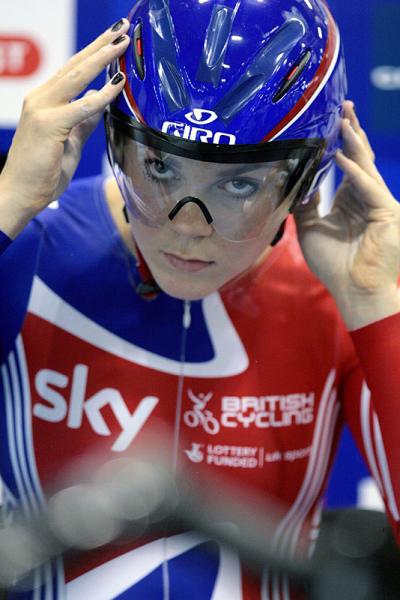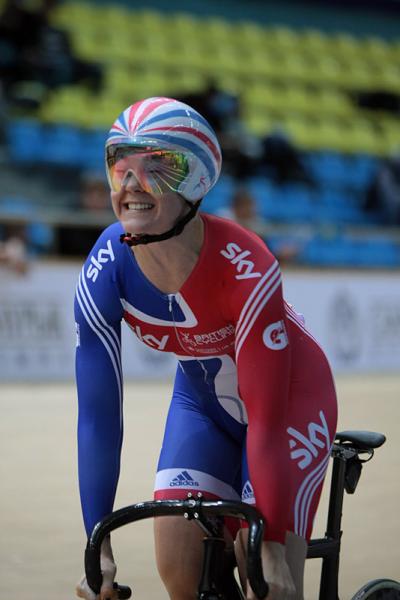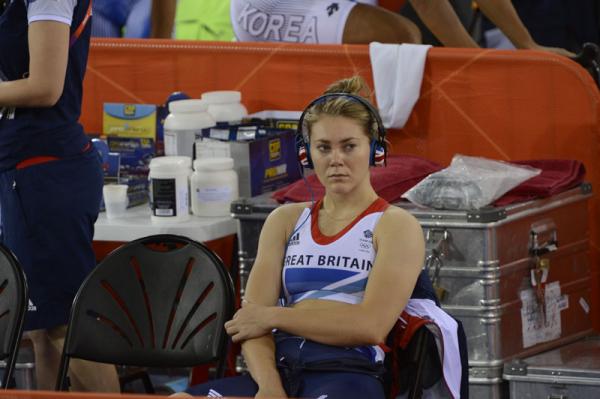British Cycling chief opens the door to possible Jess Varnish return
Harrington would welcome sprinter back if she can meet time standards
The latest race content, interviews, features, reviews and expert buying guides, direct to your inbox!
You are now subscribed
Your newsletter sign-up was successful





Jess Varnish, the whistle blower whose allegations of sexism and discrimination in Great Britain's high performance programme led to a massive upheaval across the federation, could be welcomed back into the track team if she could still meet the time standards, new British Cycling CEO Julie Harrington told the BBC today.
British Cycling sexism and discrimination crisis - Timeline
Jess Varnish speaks out after allegations against Shane Sutton upheld
Varnish to appeal British Cycling internal inquiry on Sutton
Varnish steps up case against Sutton with British Cycling
Varnish lawyers accuse British Cycling of withholding information
Varnish calls on British Cycling board to resign
Varnish critical of final version of report into British Cycling
Varnish was part of Great Britain's team sprint squad in the build up to the 2016 Olympic Games in Rio, but the team failed to qualify a place for the Olympics, and she was outspoken in her criticism of the strategy laid out by the coaching staff after the 2016 Track World Championships.
Soon after the statements, Varnish was summarily dismissed from the programme, and shot back with allegations that she had been bullied and discriminated against by technical director Shane Sutton.
The accusations sparked both an internal investigation and an independent review of the culture in British Cycling's elite teams, one that revealed a 'culture of fear' and an obsession with winning Olympic medals. Since the allegations erupted, Ian Drake left the chief executive post three months ahead of schedule, and Harrington was brought in as his replacement last March.
When asked by the BBC if Varnish could come back to the programme, Harrington replied, "She would be welcomed back if she can do the times that we need to compete at Olympic level."
Although Harrington said it might not be easy for Varnish to make the transition back to high-level sport after more than a year away, she said, "As chief executive of a national governing body, what I'd be committed to is doing everything we can to smooth that journey, to make sure that the right, open conversations are taking place.
"But you need to have the will from the top to make it happen and the door is open."
The latest race content, interviews, features, reviews and expert buying guides, direct to your inbox!
Sutton resigned after Varnish's accusations. An internal report upheld his use of sexist language toward Varnish, but found insufficient evidence to uphold eight other charges or allegations of bullying – findings to which Varnish vehemently objected.
An independent report into the incident found that British Cycling had sanitised its internal report, leaving out some more critical findings from grievance officer Alex Russell. "The actions of the British Cycling Board in that regard are shocking and inexcusable. They also call into serious question whether the composition of the British Cycling Board is fit to govern a national sporting body," the review found.
The report also found that Varnish was given no warning before she was dismissed from the team, and found that earlier warnings of 'cracks, in terms of climate and culture,' had been ignored and left to worsen since the late 2000s.
The report led British Cycling to make plans to overhaul its constitution, management structure, code of conduct and governance,
Harrington said Tuesday that British Cycling was reviewing its whistle-blowing policies.
"Athletes are not employees and so the same rigour around employee-grievance procedures for example, just hasn't been there for athletes," she said.
"We have an athlete representative group, so if people aren't comfortable talking to their coaches or senior management, they can raise concerns through their peers.
"We're also making sure that our whistle-blowing policies and grievance procedures are actually fit for athletes, not just employees."

